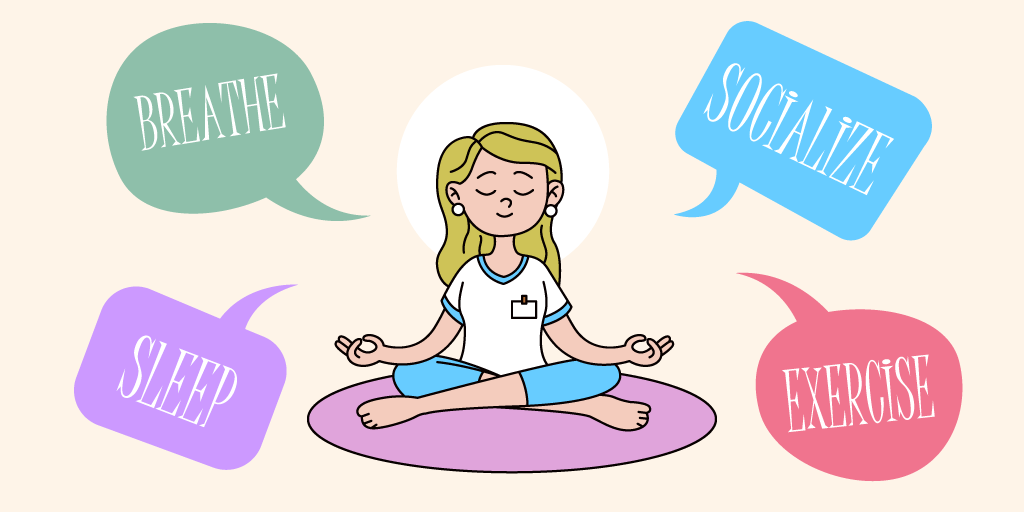How Do You Practice Good Sleep Hygiene?

How to Practice Good Sleep Hygiene
Sleep hygiene is a crucial aspect of overall health that often gets overlooked. It involves creating a routine and environment conducive to restful sleep, helping you achieve better quality and quantity of sleep each night. While it may not be a “panacea” for all sleep issues, practicing good sleep hygiene can significantly improve your ability to fall asleep and stay asleep.
Setting Your Sleep Schedule
Creating a consistent sleep schedule is foundational to good sleep hygiene.
- Have a Fixed Wake-Up Time: Regardless of whether it’s during the week or on weekends, aim for a consistent wake-up time. This helps your body recognize sleep as a regular part of your routine.
- Prioritize Sleep: Treat sleep as a priority by allocating specific time blocks and avoiding activities that interfere with rest.
- Making Gradual Adjustments: If you’re changing your bedtime, do so in small increments of up to an hour or two at a time to avoid disrupting your body’s circadian rhythm.
- Avoid Naps During the Day: While short naps can help regain energy, they can negatively impact nighttime sleep if not managed properly.
Creating a Wind-Down Routine Before Bed
A pre-sleep routine can make all the difference in helping you fall asleep faster and more comfortably.
- Set a Relaxation Timer: Start 20 minutes before bedtime to give your brain time to wind down.
- Wind Down Gradually: Engage in calming activities such as reading, taking deep breaths, or stretching.
- Dim the Lighting: Ensure your bedroom is dark and cool to encourage melatonin production.
- Limit Screen Time: Avoid devices that emit blue light, which can interfere with melatonin production and make it harder to fall asleep.
- Relax with Calming Scents: Use scented candles or diffusers with calming fragrances like lavender to create a soothing environment.
- Avoid Distractions: If you’re still awake after 20 minutes, get up and engage in calming activities before attempting to sleep again.
Cultivating Healthy Daily Habits
Healthy habits during the day contribute significantly to overall sleep quality.
- Light Exposure: Regular exposure to natural light can help regulate your circadian rhythm and support sleep.
- Physical Activity: Exercise helps wind down the body, making it easier to fall asleep.
- Avoid Smoking: Nicotine interferes with sleep regulation. Consider quitting smoking for better sleep quality.
- Limit Alcohol Consumption: While alcohol can ease the body into sleep, its effects wear off and can disrupt nighttime rest.
- Avoid Caffeine Late in the Day: Caffeine is a stimulant that can keep you wired even when you’re trying to relax.
- Eat Lightly Before Bed: Avoid heavy or spicy foods that can interfere with digestion and affect sleep.
- Restrict In-Bed Activities: Limit screen time, phone use, and other distractions to create a more conducive sleep environment.
Optimizing Your Bedroom Environment
Your bedroom should be a sanctuary of comfort and calmness.
- Comfortable Mattress and Pillow: Ensure your bedding is supportive to promote restful sleep.
- High-Quality Bedding: Choose breathable, durable materials that maintain temperature stability.
- Cool Temperature: Aim for a bedroom temperature of around 65°F (18°C) to encourage melatonin production.
- Blocking Light: Use heavy curtains or an eye mask to create darkness, as light can disrupt sleep.
- Drown Out Noise: Use earplugs, white noise machines, or fans to eliminate disruptive background sounds.
- Calm Scents: Infuse your space with calming fragrances like lavender to promote relaxation.
Is Sleep Hygiene the Same for Everyone?
Sleep hygiene needs may vary from person to person.
- Test What Works: Everyone responds differently to sleep habits. Experiment with different routines and environments to find what works best for you.
- Persistence is Key: Small, incremental changes are more effective than drastic overnight transformations.
- Seek Professional Help if Needed: If you’re experiencing persistent sleep issues or serious sleep disorders, consult a healthcare professional for tailored advice and treatment options.
In conclusion:
Sleep hygiene is achievable through consistent habits, mindful routines, and a comfortable environment. While it may not eliminate all sleep problems, it can significantly enhance your ability to achieve quality rest. Remember, everyone’s sleep needs are unique, so take the time to explore what works best for you.



